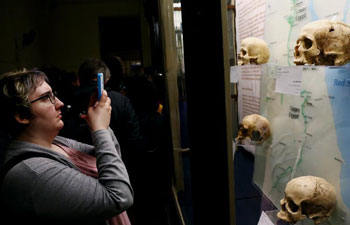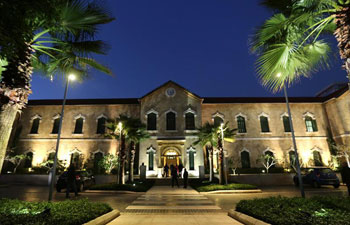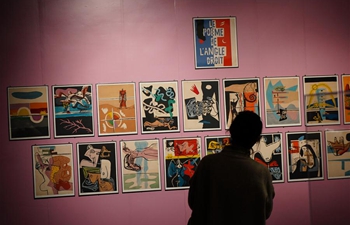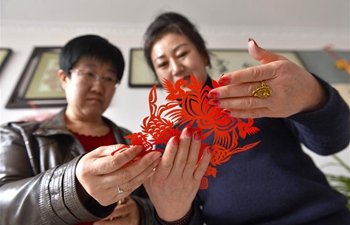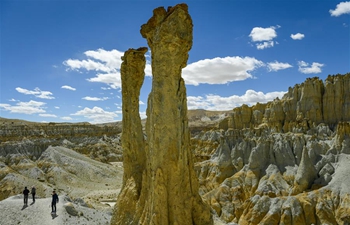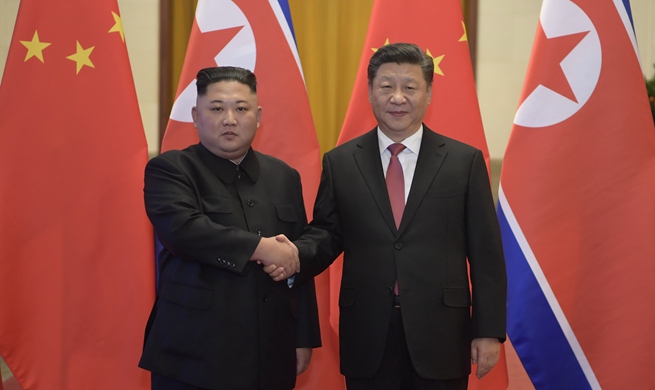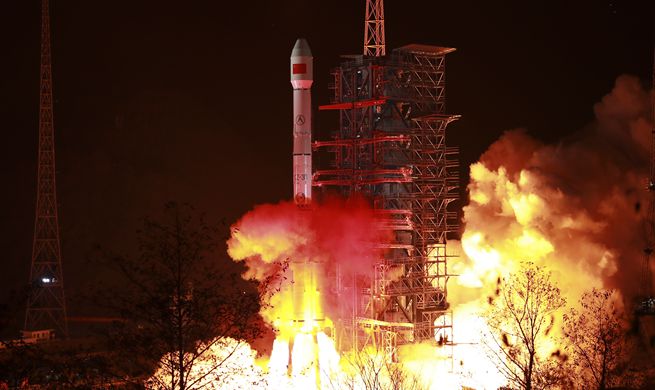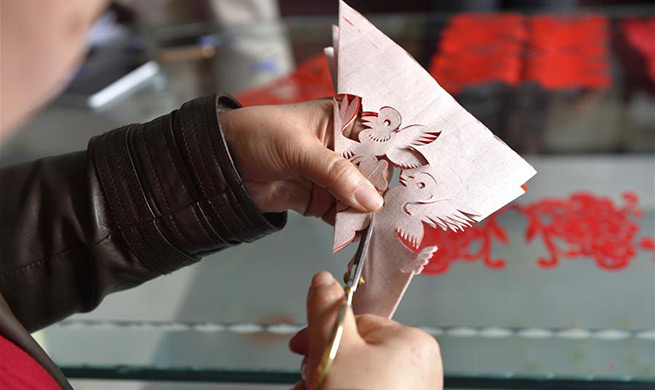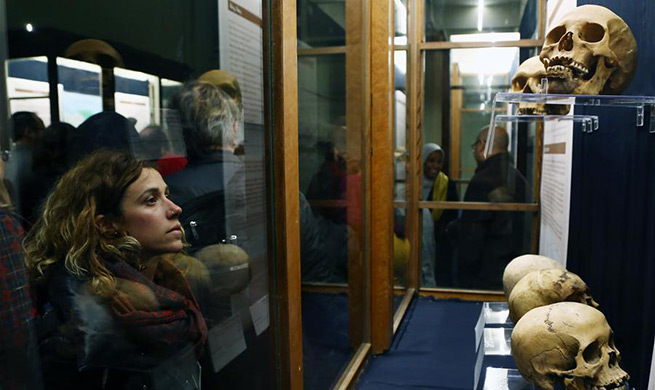CAIRO, Jan. 10 (Xinhua) -- U.S. Secretary of State Mike Pompeo's calls for regional cooperation to defy Iran's influence in the Middle East is part of a U.S. strategy to topple the Iranian regime, experts said Thursday.
Delivering a major speech at the American University in Cairo on Thursday, Pompeo said Feb. 11 will mark 40 years since "this (Iranian) brutal regime came to power."
He stressed that the U.S. government stands with the Iranian people as they demand new freedoms and accountability they deserve.
The United States will "use diplomacy" and work with partners to curb Iran's influence in the Middle East region, Pompeo added.
He also said countries of the Middle East will never enjoy security, achieve economic stability, or advance dreams of their peoples if Iran's regime persists on its current course.
"The U.S. is working with partners in the region and beyond to stop malign activity by Iran and its proxies in Iraq, Lebanon, Syria, Yemen, and elsewhere," he noted.
Pompeo's speech was seen by observers as a clear announcement of a new U.S.-led regional coalition to strip Tehran of its powers in the Middle East, or further bring down the Islamic regime.
"Pompeo's words about Iran were anticipated because most of his recent speeches focused on demonizing Iran and mobilizing partners against its policies," Cairo-based Mohamed Mohsen Aboul-Nour, founder and chief of Arab Forum for Analyzing Iranian Policies, told Xinhua.
"There have been U.S.-led arrangements over the past few months to form a coalition in the region to defy Iran," Aboul-Nour said.
Washington will lead the coalition, but its allies in the region, mainly the Gulf countries and Israel, will be the tools to implement the coalition's plans, he noted.
The Egyptian expert explained that Israeli Prime Minister Benjamin Netanyahu's visit to Oman two months ago was meant to discuss the implementation of the new U.S. plan against Iran.
However, according to Aboul-Nour, Iran's influence cannot be undermined easily because it managed to create non-Iranian militias in Lebanon, Iraq, Syria and Yemen.
"Iran is not going to lose any military confrontation in these countries. Iran also presents in these countries under their governments' request, so its presence in these countries is legal under the international law," he said.
Pompeo arrived in Cairo late Wednesday following stops in Jordan and Iraq during his Middle East tour that also includes Bahrain, Qatar, the United Arab Emirates, Saudi Arabia, Kuwait and Oman.
Earlier in the day, he held talks with Egyptian President Abdel Fattah al-Sisi over the longstanding strategic partnership between the two countries.
U.S. President Donald Trump announced last May his country's withdrawal from the Iranian nuclear deal, a landmark international agreement signed in 2015.
Afterward, the White House said Trump had "directed his administration to immediately begin the process of re-imposing sanctions related to the Joint Comprehensive Plan of Action (JCPOA)."
Trump's decision was widely anticipated, but the international society has shrugged a cold shoulder at his move.
Federica Mogherini, EU foreign and security policy chief, said Europe will stand by the nuclear accord with Iran.
UN Secretary-General Antonio Guterres called on "other JCPOA participants to abide fully by their respective commitments under the JCPOA and on all other (UN) member states to support this agreement."
Russia also expressed deep disappointment at the U.S. withdrawal, saying "there are no grounds for such a move."
While Pompeo's speech largely focused on Iran, he barely spoke of the Middle East's main issue, the Israeli-Palestinian conflict.
During his speech in Cairo, Pompeo said Washington will continue to ensure that Israel has the military capacity to defend itself against regional threats, particularly what he referred to as "the Iranian regime's aggressive adventurism."
The Trump administration recognized Jerusalem as Israel's capital last year and moved the U.S. embassy in Israel from Tel Aviv to the disputed holy city amid regional and international rejection.
Pompeo reiterated U.S. commitment to the Jerusalem recognition in favor of Israel, but he said Washington will work on the settlement of the Palestinian-Israeli conflict and continue "to press for real and lasting peace between Israel and the Palestinians."
"Pompeo's talk about Iran was meant to evade the spotlight from the region's main problem," Fadi Elhusseini, researcher and board member of the Institute for Middle East Studies-Canada, told Xinhua.
Elhusseini said the U.S. and Israeli governments always exaggerate the Iranian threat, and in turn play down the value of the Palestinian cause.
This approach reduces the chances of peacemaking because the focus of the international community goes for the Iranian issue, he added.
According to Elhusseini, the United States is attempting to use its allies in the region to cause harm to Iran, one of the U.S. bitter foes.
The expert noted that Pompeo's speech was also intended to polish U.S. image and to show it as the guardian of democracy in the world.
"Pompeo said the U.S. is not an occupying force and this is totally against the truth. History says the U.S. occupied Iraq and Afghanistan, fought in Vietnam, and intervened militarily in Somalia. It also dropped nuclear bombs on Japan in World War II," Elhusseini said.
He revealed that Pompeo also wanted to shed light on the recent deal in Syria to remove U.S. troops from there and leave Russia as a main player in the Arab country.
"In return, Iranian forces would also leave Syria and its role there would decrease," the expert explained.
He pointed out that there seems to be an international consensus on this agreement.
The change in the policies of many countries toward Syria and their acceptance of the idea of keeping Syrian President Bashar Assad in power proves this possibility, he added.





